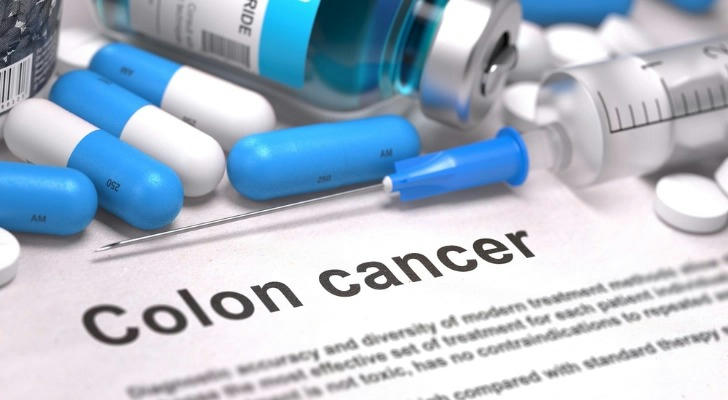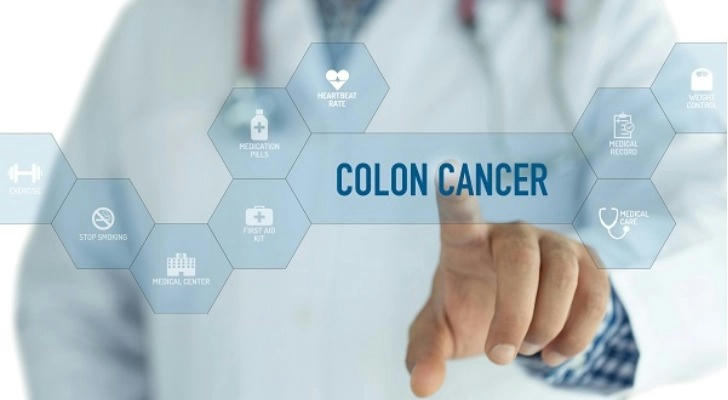How to Prevent, Treat, and Manage Colon Cancer Effectively

Colon cancer, also known as colorectal cancer, is a serious condition where cancer cells grow in the colon or rectum, which are parts of the large intestine. It often starts as small, non-cancerous growths called polyps. Over time, these polyps can turn into cancer. Early detection and treatment are crucial for improving the chances of recovery and survival.
Causes of Colon Cancer
Colon cancer can develop due to several factors:
•Genetics: A family history of colon cancer or inherited conditions like Lynch syndrome can increase risk.
•Lifestyle: Diets high in red or processed meats and low in fiber, smoking, and heavy drinking can contribute to higher risk.
•Chronic Conditions: Diseases like Crohn’s disease or ulcerative colitis can raise the risk of colon cancer.
•Age: The risk increases with age, especially after 45 years old.
•Personal History: Previous polyps or colon cancer can increase the likelihood of recurrence.
Prevention Measures for Colon Cancer

You can help prevent colon cancer through these steps:
•Regular Screenings: Start screenings at age 45 or earlier if you have risk factors. Common tests include colonoscopy and stool tests.
•Healthy Eating: Focus on a diet rich in fruits, vegetables, whole grains, and fiber. Limit red and processed meats.
•Exercise: Engage in regular physical activity to maintain a healthy weight.
•Avoid Smoking and Limit Alcohol: Avoid smoking and drink alcohol in moderation.
•Manage Chronic Conditions: Properly manage chronic conditions like inflammatory bowel disease to lower cancer risk.
Treatment Options for Colon Cancer
The treatment for colon cancer depends on the stage and location of the cancer:
•Surgery: This is often the primary treatment and involves removing the cancerous part of the colon or rectum. The extent of the surgery depends on the cancer's stage.
•Chemotherapy: This treatment uses medication to kill cancer cells or shrink tumors. It’s commonly used if the cancer has spread or after surgery.
•Radiation Therapy: Used mainly for rectal cancer or to manage symptoms if cancer has spread.
•Targeted Therapy: This treatment focuses on specific molecules that help cancer cells grow and spread. It's used for certain types of colon cancer based on genetic tests.
•Immunotherapy: This approach uses the body's immune system to fight cancer, typically used for cancers with specific genetic features.
Treatment Costs

Understanding the costs associated with colon cancer treatment is essential for financial planning. Here’s a detailed breakdown:
•Medication Costs:
•Chemotherapy Drugs: Costs can range from $10,000 to $30,000 per treatment cycle, including outpatient and hospital expenses.
•Targeted Therapy: Generally costs between $5,000 and $20,000 per month.
•Immunotherapy: Costs typically range from $10,000 to $30,000 per month.
•Surgical Costs:
•Surgery: Costs range from $15,000 to $50,000, covering the surgery, hospital stay, anesthesia, and post-operative care.
•Post-Surgical Care: Additional expenses may include follow-up visits and rehabilitation.
•Radiation Therapy Costs:
•Radiation Therapy: Costs between $10,000 and $20,000 for the entire treatment course, with each session costing $500 to $2,000.
•Targeted and Immunotherapy Costs:
•Targeted Therapy: Monthly costs range from $5,000 to $20,000.
•Immunotherapy: Monthly costs typically range from $10,000 to $30,000.
•Insurance Information:
•Medicare: Covers part of the treatment costs, including surgery, chemotherapy, and radiation, but coverage details vary by plan.
•Private Insurance: Typically covers a significant portion of treatment costs, though co-pays, deductibles, and out-of-pocket expenses can differ.
•Supplemental Insurance: Some plans offer additional coverage for costs not covered by primary insurance.
•Patient Assistance Programs: Many organizations offer help with medication costs for those with low income. Check with your healthcare provider for available resources.
Estimated Total Costs:
•Initial Diagnosis and Evaluation: $500 to $3,000 for tests and consultations.
•Surgery: $15,000 to $50,000, including hospital stay and post-surgical care.
•Chemotherapy: $10,000 to $30,000 per cycle.
•Radiation Therapy: $10,000 to $20,000 for the full course.
•Targeted and Immunotherapy: $5,000 to $30,000 per month, depending on treatment.
Recommendations:
1.Consult Insurance Experts: Understand your insurance coverage and out-of-pocket costs.
2.Verify Costs: Confirm all potential costs with healthcare providers and ask about financial assistance.
3.Explore Patient Assistance: Look for programs that may help reduce treatment costs.
Effective Solutions and Practical Advice
1.Consult a Healthcare Provider: Regular screenings and consultations with an oncologist can aid in early detection and effective treatment planning.
2.Explore Various Treatments: Consider different treatment options based on the cancer stage and your overall health.
3.Understand Costs and Insurance: Clarify financial aspects and insurance coverage for treatments, medications, and related costs.
4.Adopt Healthy Lifestyle Changes: Implement dietary and lifestyle changes to support overall health and potentially reduce cancer risk.
5.Seek Support: Emotional and psychological support is vital in managing the stress and challenges of colon cancer.
Success Stories: How Treatments Have Made a Difference
•Michael’s Recovery Journey: Michael, a 60-year-old accountant, successfully underwent surgery and chemotherapy for stage II colon cancer. His dedication to follow-ups and lifestyle changes has led to a positive prognosis and improved quality of life.
•Jessica’s Long-Term Survival: Jessica, a 50-year-old teacher, experienced a remarkable recovery after targeted therapy for advanced colon cancer. Her story highlights the potential for extended survival and quality of life with effective treatment.
•David’s Lifestyle Transformation: David, a 65-year-old retired firefighter, made significant lifestyle changes, including diet and exercise, which contributed to his successful management of colon cancer and overall health improvement.
Benefits of Addressing Colon Cancer
•Improved Quality of Life: Effective management and treatment can lead to better health outcomes and improved quality of life.
•Wide Range of Treatments: With various treatment options available, individuals can find the most suitable approach for their condition.
•Overall Health Improvement: Addressing colon cancer and associated conditions can enhance general health and prevent further complications.
Challenges and Considerations
•Cost Factors: Some treatments can be expensive, and insurance coverage may vary.
•Potential Side Effects: Treatments may have side effects that need to be managed effectively.
•Emotional and Psychological Impact: Dealing with colon cancer and its treatments can be emotionally challenging.
Future Directions for Research
To enhance understanding and treatment of colon cancer, future research should explore:
•Personalized Treatment Approaches: Tailor treatments based on individual health profiles and genetic factors.
•Long-Term Efficacy: Assess the long-term effectiveness and safety of treatments to understand their sustained benefits and risks.
•Emerging Therapies: Evaluate new treatments, such as regenerative medicine and innovative drugs, for their potential to better address colon cancer.
•Combination Therapies: Explore how combining treatments, such as surgery with chemotherapy or immunotherapy, can improve outcomes.
•Economic Evaluations: Analyze the cost-effectiveness of treatments, considering both direct costs and their impact on quality of life.
Conclusion

Colon cancer is a serious but manageable condition with various treatment options available. By understanding its causes, exploring different treatment methods, and adopting preventive measures, individuals can effectively address colon cancer and enhance their quality of life. Real-life success stories underscore the positive impact of effective treatments, and ongoing research continues to refine these approaches, offering hope for even better solutions in the future.
